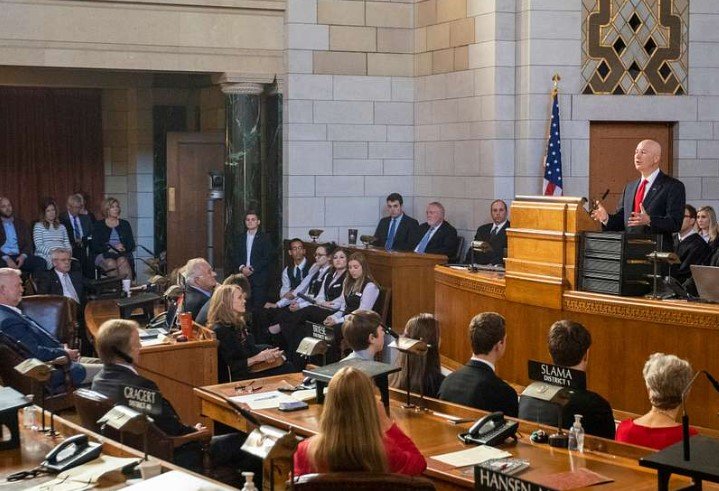As the Nebraska Senate race heats up, recent polling indicates a surprisingly close contest between incumbent U.S. Senator Deb Fischer and nonpartisan challenger Dan Osborn. With the election approaching, both candidates are ramping up their campaigns, and the stakes have never been higher.
Polling Insights and Trends
A new internal poll from Fischer’s campaign shows her leading Osborn by a narrow margin of 48% to 42%, with 10% of voters still undecided. This poll, conducted by Torchlight Strategies from October 5-8, marks a shift from earlier polling that had Fischer with a more comfortable lead of 50% to 24% in July. The recent findings, however, are just beyond the survey’s 4% margin of error, indicating a competitive race.
Osborn’s campaign has also released polling data that suggests he is in a strong position. His most recent poll, conducted by SurveyUSA, shows him leading Fischer 45% to 44%, with 11% undecided. Another poll from The Independent Center, which focuses on unaligned voters, found Osborn ahead 47% to 42%. These results reflect a trend of increasing competitiveness in a race that many initially viewed as safe for Fischer.

The Dynamics of the Race
The political landscape in Nebraska is traditionally Republican, with registered Republicans outnumbering Democrats nearly 2-to-1. However, the presence of unaligned voters—who make up a significant portion of the electorate—adds an unpredictable element to the race. Osborn’s campaign is positioning itself as a nonpartisan alternative, appealing to voters who may be disillusioned with traditional party politics.
Fischer’s campaign spokesperson, Derek Oden, expressed optimism about the recent polling, stating, “We expect this positive trend to continue as time goes on and more Nebraskans learn that Dan Osborn isn’t an independent.” This sentiment underscores the importance of voter perception as the campaign progresses.
Outside Spending and Political Implications
The tightening race has attracted significant outside spending, particularly in support of Fischer. The National Republican Senatorial Committee, typically focused on swing states, is making a rare investment in Nebraska, signaling the party’s concern about the race’s competitiveness. This influx of resources is aimed at bolstering Fischer’s campaign and countering Osborn’s grassroots efforts.
Osborn’s campaign has framed the race as a grassroots movement against the establishment, with spokesperson Dustin Wahl asserting that “Dan has a grassroots movement behind him … and that’s not going to be stopped by smear ads.” This narrative resonates with voters seeking change and may play a crucial role in the election’s outcome.
Expert Opinions on the Race
Political analysts have noted that while Fischer is still favored to win, the race’s closeness is unexpected given Nebraska’s Republican leanings. University of Nebraska at Omaha political scientist Randall Adkins remarked that the race is “more competitive than it ought to be,” highlighting the potential for an upset.
As both candidates continue to campaign vigorously, the Nebraska Senate race is shaping up to be one of the most closely watched contests in the country. With just weeks to go until the election, every poll, ad, and public appearance could make a significant difference in the final outcome.

Comments